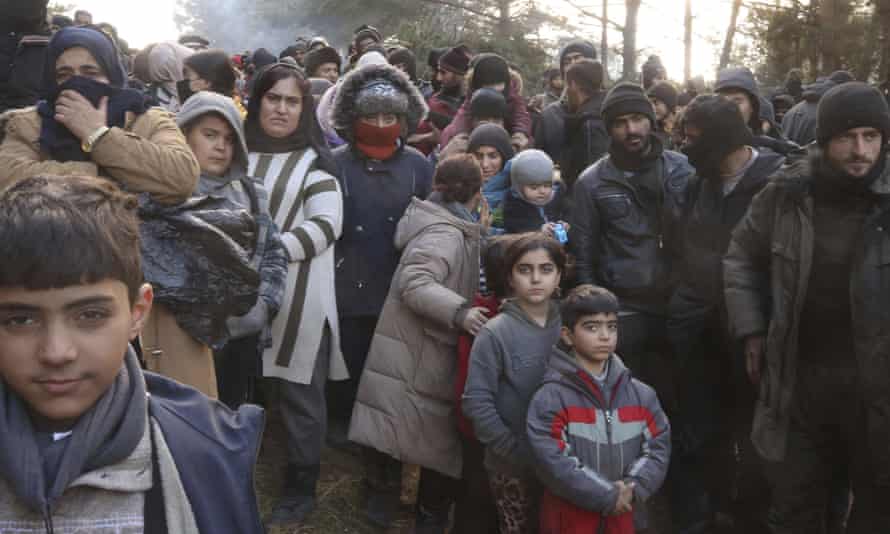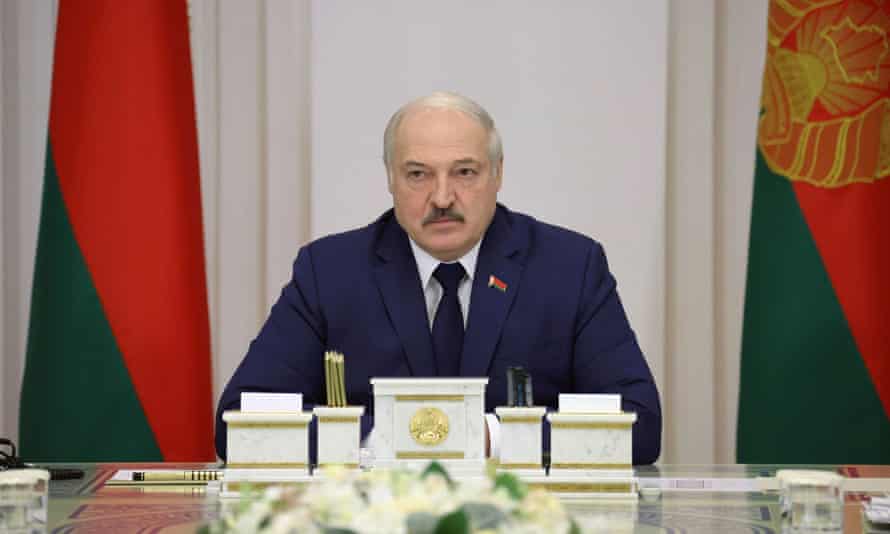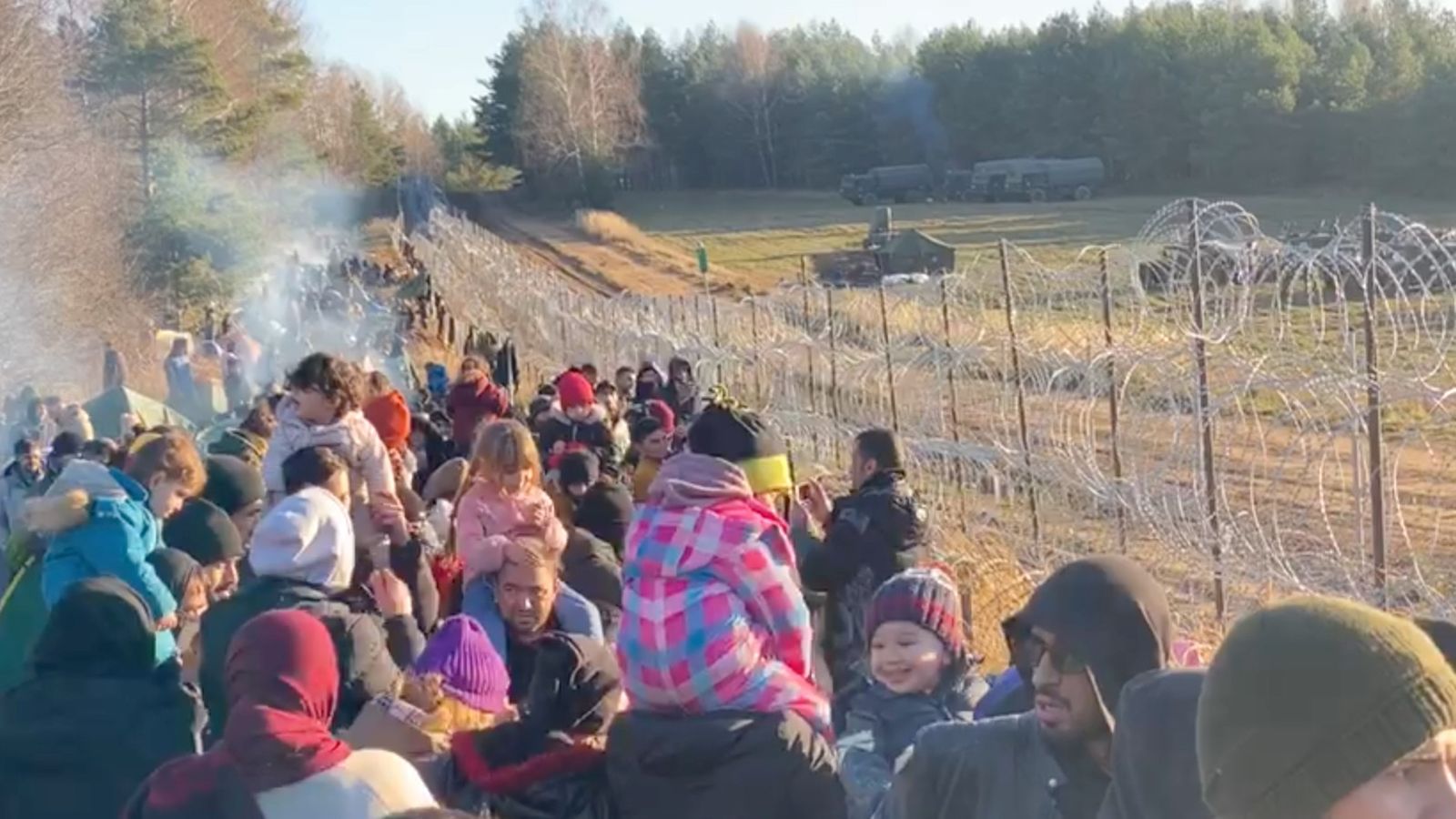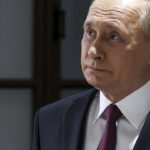Gunshots echo through the forest as Belarusian soldiers fire warning shots to drive back terrified asylum-seekers from Iraq and Syria seeking aid. Along the border, Polish and Belarusian troops eye each other warily through razor wire fence. At night, Polish guards say they’ve been blinded by Belarusians wielding strobe lights and lasers as migrants sneak across.
Asylum seekers have described hellish conditions in the forests and at improvised campsites, where they chop branches for firewood and ration water to survive. The body of a young Syrian man was found in the forest in Poland on Friday, at least the ninth person to have died this year. Others have been beaten by attackers and thieves waiting in the forest.
This is the chaos on Europe’s eastern border in 2021. In the past year, Alexander Lukashenko, the autocratic leader of Belarus, has gone from nuisance, to international pariah, to nemesis. His greatest gambit yet has been to engineer a new migrant crisis on the borders of the EU, utilising the desperation of thousands of people to take revenge on Brussels for sanctions against his regime.
He believes that by escalating this crisis to the point of a humanitarian catastrophe, he can force the EU to the table. In his most bombastic comments, he has even threatened that his ally Russia could be drawn into a border conflict with Europe.
“He is not afraid of deaths at the border,” said a panel of experts from the European Council on Foreign Relations last week. “For him, this is about vengeance and is a matter of regime survival – meaning that he is ready to escalate further, and to seek Russia’s backing in the process.”
Lukashenko’s top backer seems to have balked at his most aggressive threats. On Saturday, Vladimir Putin said that Lukashenko was speaking out of turn when he threatened to cut Russian gas deliveries to Europe.
“I’m hearing about this for the first time … he didn’t even suggest it to me,” Putin said in his first public remarks on the crisis since a column of more than 1,000 migrants, many Iraqi Kurds, descended on the border last week. “He could do this in theory but there’s nothing good about it.”

Putin also distanced Russia from the crisis, possibly with an eye on EU sanctions that are set to target Belarus and airlines ferrying migrants from the Middle East this week.
“I want everyone to know we have nothing to do with it,” Putin said in an interview for Moscow. Kremlin. Putin, a show mostly about him. “Everyone is trying to reshuffle some responsibility on to us in any case or without a case at all. But none of our airlines transport those people.”
Europeans, particularly Ukrainians, have heard these kinds of denials before. Since 2014, Russia has repeatedly claimed it has nothing to do with the conflict in south-east Ukraine, despite ample evidence that Russian troops have fought and died there, and that Russia sends money, men and materiel to arm its proxies.
Now, as Belarus’s main backer in a conflict with the EU, Moscow is pursuing a similar strategy: trying to initiate talks between Minsk and European countries, in particular Germany, while playing the role of disinterested party. Few buy this.
“It’s the same way that they had ‘nothing to do with’ green men in Crimea,” said Linas Linkevicius, a former foreign and defence minister of Lithuania, in response to Putin’s comments. Angela Merkel, the outgoing German chancellor, called Putin last week to tell him to influence the regime in Minsk. The prime minister of Poland, who has authorised extreme, controversial measures to push back migrants from its borders, has accused Putin of “masterminding” the migrant crisis.
The signals from Russia are not encouraging. In the past week, US officials have warned of a new Russian buildup, with tanks, artillery, even short-range ballistic missiles moving in to border regions with Ukraine and Belarus. If it doesn’t point to an imminent invasion, the unusual military activity means Russia can mobilise quickly if it decides to send a large force across the border.
“Our concern is that Russia may make a serious mistake of attempting to rehash what it undertook back in 2014, when it amassed forces along the border, crossed into sovereign Ukrainian territory and did so claiming falsely that it was provoked,” US secretary of state Antony Blinken said on Wednesday.
Meanwhile, Russia has deployed paratroopers and nuclear-capable bombers to Belarus for training exercises this week in a sign of its continuing support for Minsk. On Friday, Russia sent two bombers over the North Sea, where the RAF had to scramble fighters to intercept them.
“The military-political situation in Europe is deteriorating. The Nato military buildup near Russian borders is continuing,” said a deputy to Russian defence minister Sergei Shoigu during talks in Paris this week. Putin has also complained about recent Nato drills in the Black Sea and Ukraine’s use of Turkish drones in east Ukraine.

The rising tension between east and west suits Lukashenko, who has pinned his hopes on Russia’s backing. He said last week: “We know that if, God forbid, we make some mistake, if we stumble, it will immediately draw Russia into this whirlpool and this is the largest nuclear power.”
But in turning himself into one of Europe’s greatest threats, the former Belarus farming boss is playing a dangerous game. New European sanctions, which could target airlines or even the Minsk airport, are expected to drive Belarus further into isolation. And even stalwart opponents of Lukashenko question whether his Kremlin backing is unconditional. Franak Viačorka, an advisor to opposition leader Sviatlana Tsikhanouskaya, said of Lukashenko’s threats to cut off gas to Europe: “Predictably, he didn’t consult the Kremlin. He is again trying to hide behind [Russia]. The crisis on the border will be solved by dismantling dictatorship in Minsk.”
By: Andrew Roth
Source: The Guardian


